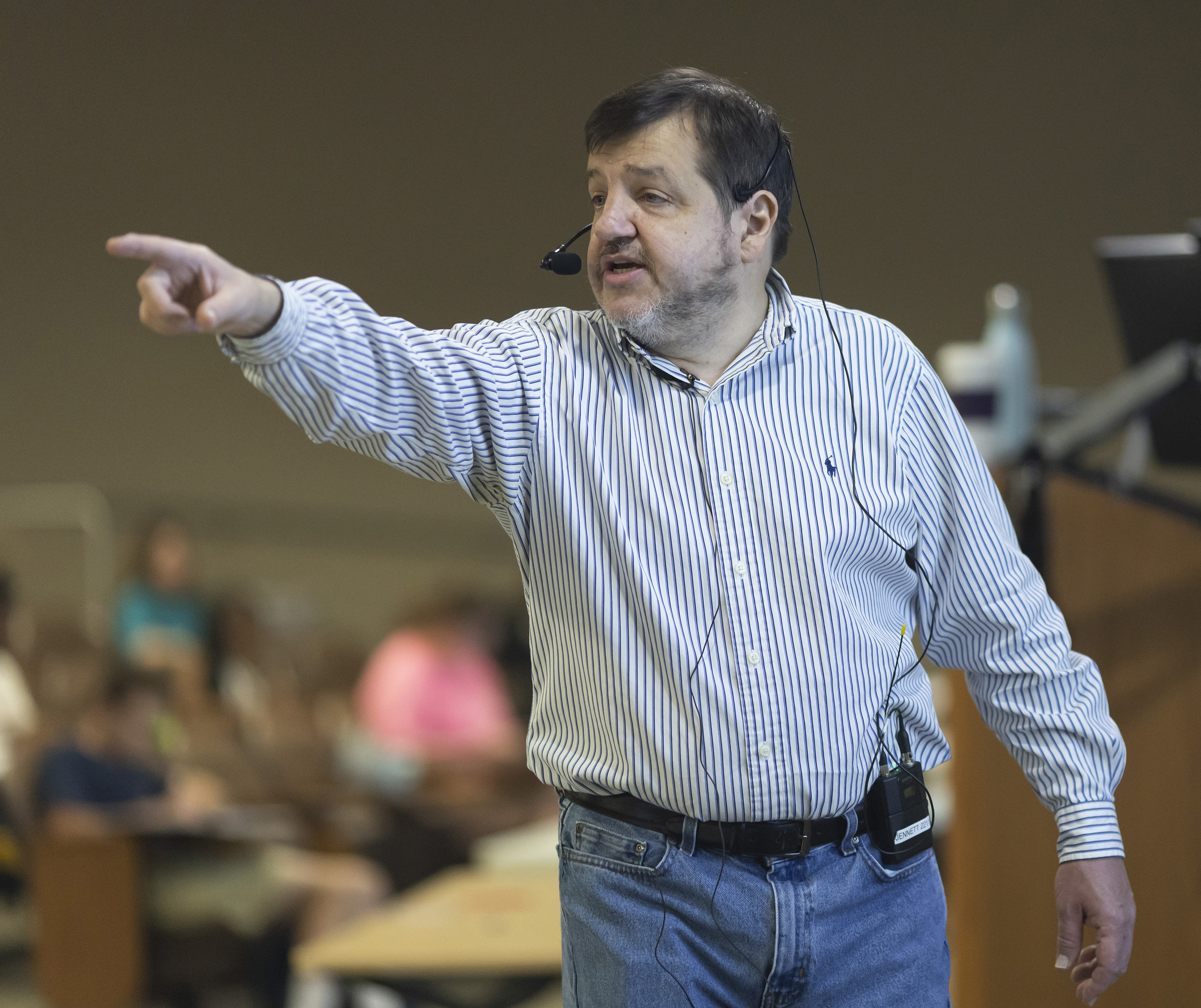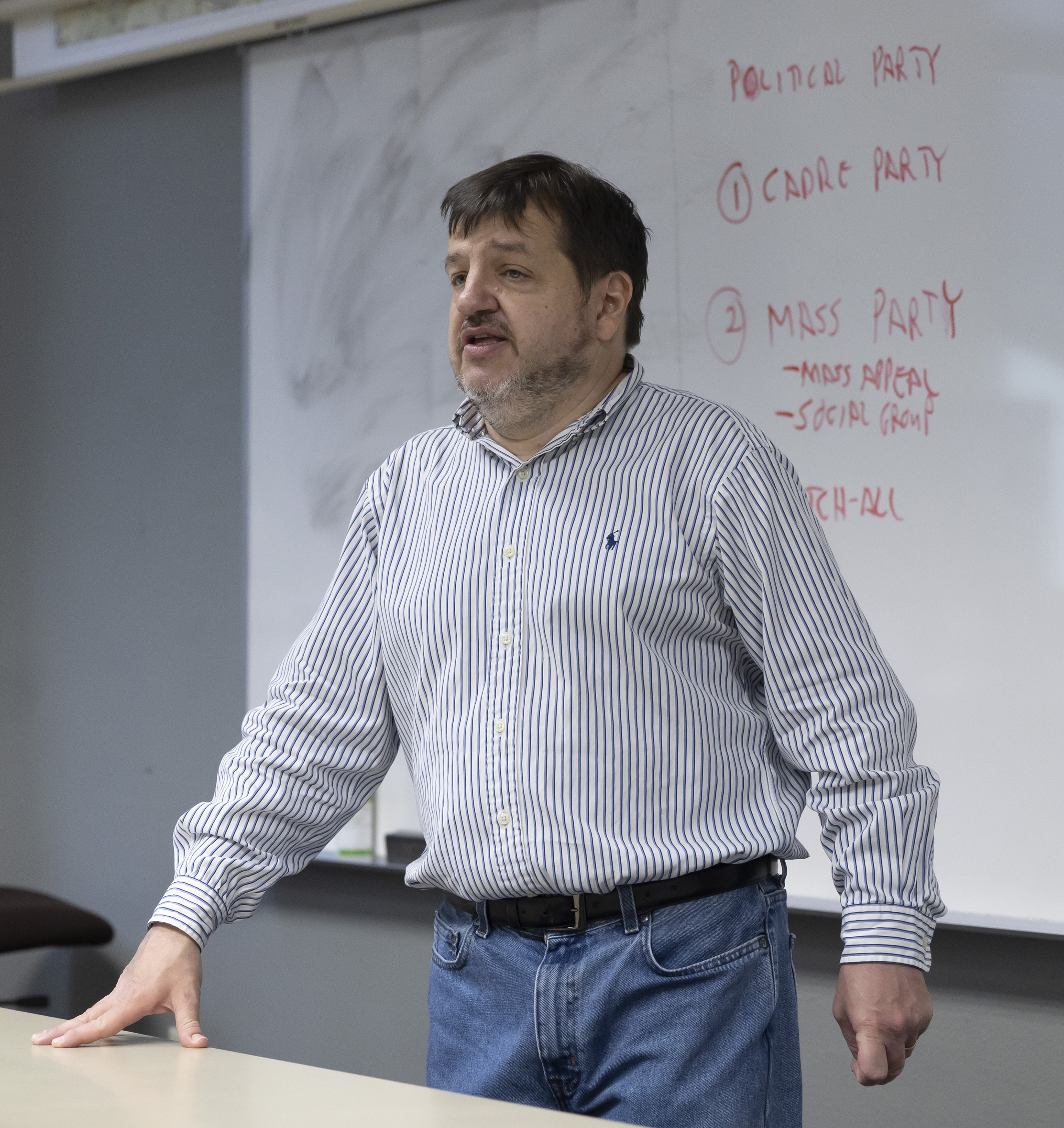VSU’s Bernard Tamas Considered Top Expert on Third Parties in U.S. Politics
Our #Poly_Newser covers ‘news of the day’ #politics content.
Cryptopolytech Public Press Pass
VSU’s Bernard Tamas Considered Top Expert on Third Parties in U.S. Politics
Subject: 11000000 – Politics
•| Politics |•| 11000000 | •| POLY |
VSU’s Bernard Tamas Considered Top Expert on Third Parties in U.S. Politics
August 25, 2022
22-119
Jessica Pope
Communications and Media Relations Coordinator

|
|
Valdosta State University’s Dr. Bernard Tamas has researched third parties in United States politics for well over a decade. His 2018 book, The Demise and Rebirth of American Third Parties, established him as a highly sought-after expert on the topic.
|
VALDOSTA — Valdosta State University’s Dr. Bernard Tamas has researched third parties in United States politics for well over a decade. His 2018 book, The Demise and Rebirth of American Third Parties, established him as a highly sought-after expert on the topic.
Tamas was recently featured in The Conversation’s “A New Third Party for U.S. Politics: Three Essential Reads on What That Means,” on C-Span’s Washington Journal with Bill Scanlan, on CNN’s Full Stop with Mark Preston, where the other guest was former presidential hopeful Andrew Yang, and in The Guardian’s “Forward! Is America’s Latest Third Party Marching to Power — or Oblivion?”
Tamas was inspired to write The Demise and Rebirth of American Third Parties after publishing “Ballot Access Laws and the Decline of American Third Parties” in 2014 in Election Law Journal. For the article he “gathered a large amount of election data since the 1890s and tested established theories on why third parties are weaker today than a century ago,” he said.
“My evidence showed that these existing theories were mostly wrong and that third parties in the U.S. were actually getting stronger, which also contradicted much of what established theories concluded.”
In a 2021 article in The Conversation, Tamas predicted a moderate third party would soon emerge.
In late July, Forward, a formal merger of the Forward Party, the Renew America Movement, and the Serve America Movement, introduced itself to the public. Tamas said there is current speculation that Congresswoman Liz Cheney of Wyoming, who lost her August primary race, might also mount a third-party challenge.
“U.S. third parties are historically the most active and strongest in periods like we have today, when the two major parties are highly polarized,” Tamas explained. “Because the two parties are so far apart ideologically, many voters that are more moderate are left without a party representing their views, which in turn, opens the door for a potential third party to gain public support.”
“This could set off a process that’s been called ‘sting like a bee,’” he continued. “This is when a new third party emerges fairly quickly and takes voters away from one or both major parties, stinging them hard at the ballots. In reaction to this new threat, one or both major parties respond by shifting back towards the center. Usually the third party then dies off — like a bee after it delivers its sting. But it manages to impact the process enough that the major parties have shifted back from their extreme positions.”
As Tamas has noted before, sometimes the end goal is about more than winning an election.
“The most successful third parties in U.S. politics don’t typically rise to dominance but instead challenge the major parties enough to force them to change course,” he said.
In his recent interview with The Guardian, Tamas used the Progressive Party of 1912 as an example of how third parties can win without actually winning.
Formed by 26th president Theodore Roosevelt after he lost the Republican Party presidential nomination to incumbent president William Howard Taft, the Progressive Party advocated for child labor laws, improved working conditions, including the eight-hour workday and a day off to rest, and more. The party did not win the election, but the reforms it promoted were eventually introduced.
“They were looking for structural reform,” Tamas explained. “This is what they pushed for, and this is what they got. This was a big part of their success.”
Forward’s agenda appears to be most focused on election reform, such as ranked-choice voting, nonpartisan primaries, and independent redistricting commissions.
Gallup pollsters recently asked Americans about their party membership — “In politics, as of today, do you consider yourself a Republican, a Democrat, or an independent?” The results of that June survey indicated that 43 percent of respondents said they were independent, 27 percent were Republicans, and 27 percent were Democrats. But Tamas said that being independent is not enough. His research shows that third parties are built on outrage when the public is galvanized, and thus far Forward does not appear to have adequately tapped into that anger.
Tamas joined the VSU faculty in 2014 and currently serves as an associate professor of political science in the College of Humanities and Social Sciences. Before joining the Blazer Nation family he was a visiting research scholar at Columbia University and taught at Brandeis University, Williams College, and Illinois State University. He completed a postdoctoral fellowship at Harvard University and held a Fulbright scholarship to Central European University in Budapest, Hungary. Besides being a political scientist, he has a passion for developing software and previously worked as a software developer at Princeton University. In 2019 he received a research grant from Massachusetts Institute of Technology’s Election Data and Science Lab to study voter underrepresentation and electoral bias in U.S. elections.
Tamas enjoys teaching advanced courses on elections and training students to conduct their own research, including gathering data and employing statistics to tackle real life issues and concerns. His favorite course to teach is American government because it exposes “students with no political science background to the importance of politics and how it prevails in almost every walk of life. I teach it as an exciting, high energy class that encourages student participation and interaction.”
On the Web:
https://www.valdosta.edu/polsci/
https://www.routledge.com/The-Demise-and-Rebirth-of-American-Third-Parties-Poised-for-Political-Revival/Tamas/p/book/9780815356394
https://theconversation.com/a-new-third-party-for-us-politics-3-essential-reads-on-what-that-means-187895
https://www.c-span.org/video/?522002-101/washington-journal-bernard-tamas-discusses-history-parties-us&event=522002&playEvent
https://www.theguardian.com/us-news/2022/aug/07/forward-third-party-andrew-yang
https://www.liebertpub.com/doi/abs/10.1089/elj.2013.0217
https://www.valdosta.edu/about/news/releases/2019/07/vsus-bernard-tamas-awarded-grant-from-mit-election-data-and-science-lab.php
‘News of the Day’ content, as reported by public domain newswires.
Source Information (if available)
It appears the above article may have originally appeared on www.valdosta.edu and has been shared elsewhere on the internet, repeatedly. News articles have become eerily similar to manufacturer descriptions.
We will happily entertain any content removal requests, simply reach out to us. In the interim, please perform due diligence and place any content you deem “privileged” behind a subscription and/or paywall.
First to share? If share image does not populate, please close the share box & re-open or reload page to load the image, Thanks!



 Dr. Bernard Tamas joined the Valdosta State University faculty in 2014 and currently serves as an associate professor of political science in the College of Humanities and Social Sciences. He enjoys teaching advanced courses on elections and training students to conduct their own research, including gathering data and employing statistics to tackle real life issues and concerns.
Dr. Bernard Tamas joined the Valdosta State University faculty in 2014 and currently serves as an associate professor of political science in the College of Humanities and Social Sciences. He enjoys teaching advanced courses on elections and training students to conduct their own research, including gathering data and employing statistics to tackle real life issues and concerns.